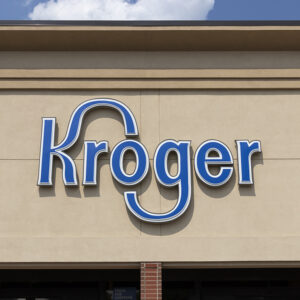A flurry of lawsuits regarding the potential Kroger-Albertsons merger, culminating in a complaint by the Federal Trade Commission, has brought the issue of grocery store consolidation into the spotlight. While keeping access to groceries is essential for consumer welfare, that doesn’t mean taking an anti-merger stance. Changes in the grocery marketplace have meant that size benefits consumers and is necessary for competition.
Following the proposed merger, the newly combined Kroger-Albertsons would still be smaller than Walmart. However, the merger would allow Kroger to compete more effectively.
For some time, the U.S. grocery market has been moving away from regional grocery stores and toward larger supermarkets. Today, the market is much bigger and broader than in the past, with wholesale clubs and online services challenging regional stores for market share.
A successful merger would make Kroger-Albertsons the nation’s third-largest grocer, with 9 percent of nationwide sales. Walmart would remain the dominant industry player. In other words, allowing the merger to proceed would create more robust competition for stores like Walmart, not less.
The best way to enhance competition is to allow companies to compete without government interference. The Kroger-Albertsons merger presents an opportunity to achieve that because it will benefit consumers with lower prices and more product offerings.
Kroger CEO Rodney McMullen noted that the new efficiencies created by the merger would save the company $500 million. He said these savings would, in turn, be passed down to the consumer through lower prices. In addition, Kroger has stated that it is committed to protecting union jobs and ensuring that no layoffs occur in the divested stores. In February, Kroger released a statement that backed up this assertion by showing how its past mergers with Harris Teeter and Roundy have resulted in lower consumer prices and investments to improve customer experience.
Other new market entrees like Amazon also have the potential to enhance competition and unlock consumer benefits. For instance, Amazon’s acquisition of Whole Foods led to a decrease in some consumer prices. However, these consumer benefits depend on the market being able to operate freely. Sometimes that requires allowing mergers like Kroger and Albertsons to proceed as planned, no matter how tempting it may be for regulators to intervene.
The current barrier for Kroger and Albertsons comes down to the FTC. Its lawsuit is the latest trend of antitrust regulators moving away from the consumer welfare standard, favoring a new approach that focuses on structural characteristics such as size. What the commission ultimately decides matters.


